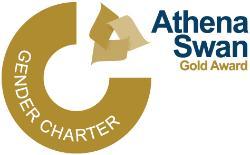Guidelines and policies
SHW guidance on good practice for remote working
Remote working became the new normal for us all in 2020 and is still a major part of our working lives as we move forward, as a component of hybrid working (the facility to vary our place of work usually by prior arrangement, most commonly a mix of working on campus and at home). We can all benefit from thinking about how to make the experience as comfortable, connected and productive as possible.

This guidance is intended to acknowledge and address some of the concerns raised in our SHW COVID-19 survey. It is partly based on helpful tips published by the University of Bristol.
We consider key issues regarding the working environment, mental wellbeing, connecting with colleagues, use of email, and separating work and home. We also highlight the crucial role of the line manager in ensuring their staff can thrive while working remotely and point to some online resources to make remote working easier.
Working environment
Our working environment has a big effect on our physical and mental wellbeing and our ability to get things done. Lack of a dedicated workspace and equipment was reported in our survey as a significant source of stress.
- Suitable equipment, such as an external/second monitor, laptop stand, microphone headset or new webcam, can make a big difference. Contact your research unit lead administrator to see what can be borrowed or purchased.
- Consult the university’s helpful tips for good advice on how to set up your work station.
Mental wellbeing
Our survey showed that many of us have experienced worse mental health and wellbeing since the pandemic began. In addition to the stress of worrying about our health and our loved ones, adapting to changes in life plans and coping with bereavement, the experience of remote working is itself a source of anxiety and loneliness for many people.
- Take regular breaks: e.g. have a cup of tea or coffee, listen to a podcast, read a magazine or even do a few household chores.
- Move around when you can.
- Consider taking time out during the day so you can get outside during the daylight hours.
- Our guidance for online meetings addresses some stressful aspects of remote working such as "Zoom anxiety" and privacy concerns.
- The university’s Employee Assistance Programme (PAM Assist) offers individual counselling, and Togetherall is an online source of peer support and advice available 24 hours a day, 365 days a year.
- Support for people experiencing domestic abuse is available on the mygov.scot website.
Connecting with colleagues
One of the biggest changes of remote working is the reduction in interpersonal contact with our immediate colleagues and wider networks. This can have a knock-on effect on our sense of connection and camaraderie.
- Reserve 5–10 minutes at the start or end of regular team/group meetings for social or informal conversation before the business agenda begins.
- If you are not already doing so, consider holding a weekly team coffee morning or lunch via Zoom or Teams.
- If you normally share an office space and enjoy chatting during the working day, could you and your colleagues keep the Teams app open sometimes to exchange social messages?
- Use the chat box on Zoom/Teams to send people individual messages during meetings.
Use of email
Some aspects of remote working have led to an increase in email traffic, e.g. calendar notifications and brief queries that would previously have been dealt with face-to-face. As well as following our email guidance and etiquette, we can all do our bit to reduce email burden by thinking before sending.
- Rather than sending several brief email queries, can these be saved for a regular check-in message, meeting or Teams chat?
- Consider whether you need to send a response to each calendar invitation or if you can click the accept/decline button without triggering a response to the host.
- If you are receiving unwanted Office365 notifications (e.g. when someone mentions you in a shared document), take a moment to update your preferences to reduce their frequency.
- Remind others that you do not expect them to read or respond to your emails outside their preferred working hours, e.g. by noting this in your email signature.
- Consider when and how you want to receive email notifications. If you have your work email on your personal devices, consider switching off alerts to ensure you only read your emails when you are actively working.
Separating work and home
It may be difficult to create a separate workspace at home, but there are things you can do to help.
- Try to place your work equipment away from your living space, or at least out of your line of sight when you are relaxing.
- Avoid working in your bedroom if possible as this can create a stressful association that may affect your sleep.
- Have a clear transition period at the start and end of the working day, e.g. by going for a walk.
- If you prefer structure and routine, try to keep this going while working from home. If you haven’t done so, consider setting ground rules to maintain structure and boundaries.
- Returning from annual leave is a good opportunity to make a change and tell your line manager and colleagues your preferences and intentions.
Role of the line manager
A supportive line manager can make all the difference. There are a few things line managers should consider to help staff working at home.
- Remote working makes it harder to notice if someone is not their usual self, so try to arrange a regular one-to-one check-in with all staff to ask how they are doing generally – be prepared to listen openly and non-judgementally.
- Encourage staff to work flexibly as suits their current circumstances whenever possible – focus on the outputs (i.e. doing the work) rather than the process (i.e. when/where we do it).
- Note achievements, however small – many people are feeling overwhelmed by problems and unfinished tasks, and it is important not to focus entirely on these in the time-limited contact that we have.
- Consider asking more frequently whether everyone is clear about what has been agreed, to avoid any miscommunication in the absence of face-to-face contact.
- Be clear about expectations on both sides and revise these regularly as circumstances change.
- Encourage staff to read this guidance and support them to make any changes to their working practice to promote their mental and physical wellbeing.
- Staff should remember that line managers are people too, and they can have "off" days.
Resources for online collaboration, teaching and learning
Glasgow Anywhere offers many great resources to make remote working more efficient and engaging. After the initial push to move our files to OneDrive and SharePoint and get to grips with Zoom and Office365, we may be less aware of the new options that are available to us. Try to make time to explore the various resources on offer and catch up on the excellent blended learning training sessions provided by the Digital Education team.
SHW Athena Swan self assessment team
June 2023


